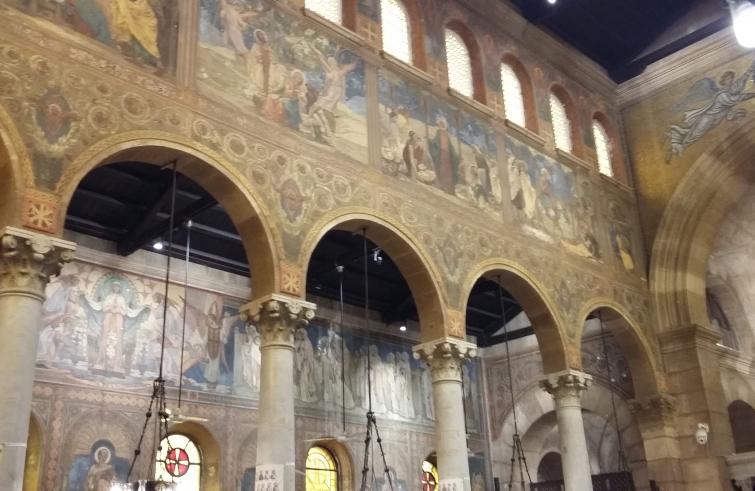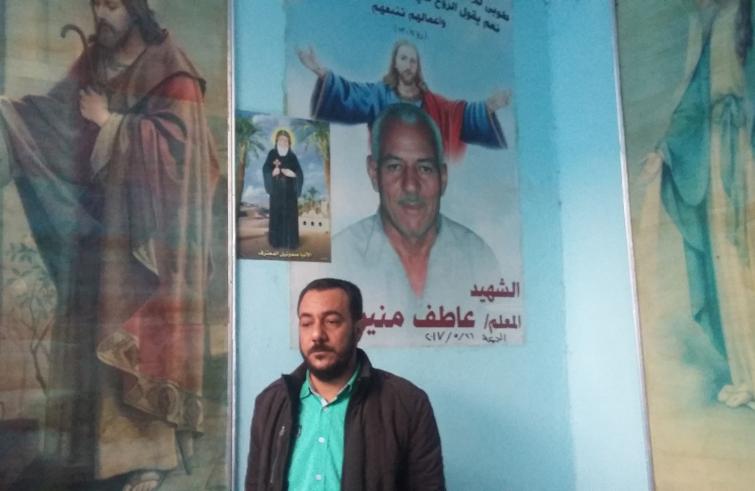Persecution
The witness of the family of three “martyrs” collected during a trip to Egypt of Aid to the Church in Need – Italy- that ended on Sunday January 28, that SIR took part in. The Coptic-Orthodox Church counts as many as 12 million faithful, representing over 10% of the Egyptian population. Some 2 million faithful live in the diaspora. Coptic-Catholics in the Country amount to approximately 300 thousand

A besieged community, rich in courage and faith. A long trail of blood that bears the face of numerous martyrs. Descendants of the first Christian communities that blossomed with the preaching of St. Marc under Nero’s Empire, Egyptian Copts cherish a deep-rooted faith that is scarcely prone to fear and surrender. It’s one of the reasons why they are the victims of the violence of Jihadi militants. The exact figures are hard to know: they amount to at least 12 million faithful according to the Coptic-Orthodox Church, representing over 10% of the Egyptian population. Over 2 million faithful live in the diaspora. Approximately 300 thousand are Coptic-Catholics. They go to church despite massacres, suicide-bombings, and beheadings, as experienced by the Muslim Brotherhood that in the summer of 2013, when the Islamist government led by President Mohamed Morsi was removed from his post by the military, launched violent attacks against churches and Christian institutions, ravaging more than 60.
The more they are attacked, the more they attend church services.
 Little does it matter if strict security measures have been put in place at church entrances, decided by President al-Sisi to protect this indigenous community.
Little does it matter if strict security measures have been put in place at church entrances, decided by President al-Sisi to protect this indigenous community.
Coptic Christians appear to be resilient to fear, even after the latest series of terror attacks that left dozens of people dead and hundreds wounded. The double attack of April 9 2017, Palm Sunday, in Alexandria, in Saint Marc’s Cathedral and in Tanta, in Saint George’s church, on May 26 2017, the massacre of 26 pilgrims directed to the shrine of Saint Samuel the Confessor, in the turbulent district of Minya, and past December 29, in the Helwan district, south of Cairo, the assault on the Mar Mina church. In January 2015, 21 Coptic workers were killed by ISIS militants in Libya, they continued praying to Christ while they were being slaughtered.
Maryam, mother of three -, 15, 12 and 2 – knows no fear. Her husband, Nabil Habib Abdallah, was the guardian of St. Peter and St. Paul Coptic-Orthodox Church, located in the premises of Saint Marc’s Cathedral, home to Pope Tawadros II.
 An explosion caused by 12 kilos of TNT took his life along with that of 24 people, almost all of them women and girls, on December 11 2016. “On that day – the woman told a delegation from ACN Italy in Egypt for a solidarity visit to local Christians – my husband was in the church with my older daughter.” The accounts of those tragic moments describe Nabil’s desperate attempt to prevent the terrorists from entering the church. According to many survivors his intervention prevented an even higher death toll. The church, restored by the Egyptian army, still bears the signs of the explosion on the marble columns where a merciful hand placed a cloth bearing the faces and the names of the victims.
An explosion caused by 12 kilos of TNT took his life along with that of 24 people, almost all of them women and girls, on December 11 2016. “On that day – the woman told a delegation from ACN Italy in Egypt for a solidarity visit to local Christians – my husband was in the church with my older daughter.” The accounts of those tragic moments describe Nabil’s desperate attempt to prevent the terrorists from entering the church. According to many survivors his intervention prevented an even higher death toll. The church, restored by the Egyptian army, still bears the signs of the explosion on the marble columns where a merciful hand placed a cloth bearing the faces and the names of the victims.
 Where did you find the strength to go on? She repeats the question and with the glimpse of a smile replies, holding in her hands the image of her husband hanging from her necklace:
Where did you find the strength to go on? She repeats the question and with the glimpse of a smile replies, holding in her hands the image of her husband hanging from her necklace:
“We are Copts and we are prepared for anything. We are aware that another attack could occur any moment. For us dying means rising up to the Heavens, death is the gateway to the Skies. Our martyrs tell us that dying for Christ is a passage to the Heavens. They are our intercessors.”
Over a year has passed since that 11 December and “every day that goes by we feel his presence. We live in the hope that one day we might meet again. When my children ask about their father, my daughter, the older one, replies, ‘Daddy is in heaven’”. “You are asking me if have forgiven?” A deep breath, followed by the prompt reply:
“Yes. We must remember that we are Christians.”
Jahne, three children, of which two twins aged 8, Fady and Bishoy, is not afraid. Her husband, Ibrahim Gerges, was killed in the attack on Saint Marc’s church in Alexandria on April 9 2017, Palm Sunday. The same day another attack brought death and destruction also to St.George’s church, in Tanta, in northern Cairo.
 “Mass had just ended and we were talking with my husband and other relatives in front of the souvenir shop near the gate leading into the church – the woman recalled -. One of my boys was unknowingly playing near the suicide bomber. He saved himself by running towards the church an instant before the explosion. My husband was literally swept away. I was seriously injured in my arm, face and shoulders. My clothes were burnt from the explosion. I stayed in hospital for a very long time.
“Mass had just ended and we were talking with my husband and other relatives in front of the souvenir shop near the gate leading into the church – the woman recalled -. One of my boys was unknowingly playing near the suicide bomber. He saved himself by running towards the church an instant before the explosion. My husband was literally swept away. I was seriously injured in my arm, face and shoulders. My clothes were burnt from the explosion. I stayed in hospital for a very long time.
I only learned about the death of my husband a few days later. I was informed by my spiritual father who spoke to me about martyrdom. I asked him why he was addressing the subject of martyrdom, how was it related to my Ibrahim. Then I understood.
I was shocked, and for several days I couldn’t speak.” Jahne continues attending Mass. The Coptic-Orthodox Church didn’t leave her alone and helps her also through a fund for martyrs established by Pope Tawadros II. In this woman’s life just one question remained unanswered. It’s the question of his son, who saw the face of the suicide-bomber before the explosion.
“Dear God, why did you take my father?”.
Maikal is the son of Atef Moner Zaki, killed by ISIS on May 26 2017, while he was going to work at the Shrine of Saint Samuel the Confessor, near Minya. He died with 26 pilgrims that were on a bus directed to the shrine. Seven ISIS armed assailants stopped the bus and killed them cold-bloodedly because they refused to convert to Islam.
 “My father was shot in the head – Maikal said while caressing the father’s image on the tombstone – we feel his presence closer than ever.
“My father was shot in the head – Maikal said while caressing the father’s image on the tombstone – we feel his presence closer than ever.
His death is a blessing for us.
As Christians we try to forgive. We are not afraid. There is no death for those who love God.”